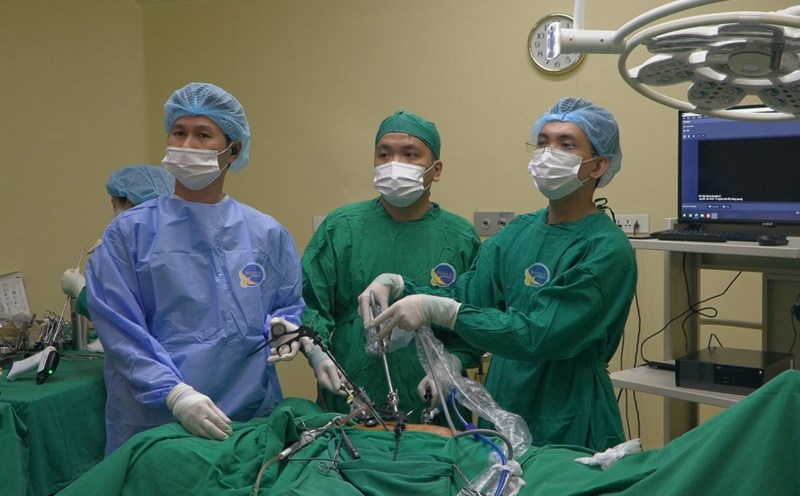Ms. N.'s story is a wake-up call about the importance of early screening, especially for people with genetic risk factors.
In 2024, Ms. N. discovered a tumor in her right chest but subjectively thought it was benign, so she did not see a doctor. A year later, the tumor grew rapidly and caused pain, so she went to Tam Anh General Hospital in Ho Chi Minh City for examination and was given an ultrasound by the doctor. The ultrasound and photopham results showed a 5cm tumor with a blood vessel. Biologically determined that Ms. N. had stage 3 breast cancer, hormonal system.
Ms. N. shared that in her family, her aunt was diagnosed with breast cancer in 2010; her cousin contracted the disease in 2018; her biological sister was diagnosed with cancer in 2019 at the age of 45. Although the test did not detect a BRCA1/2 gene mutation, the fact that many primary and secondary relatives have the disease puts her in the high risk group.
According to MSc. Dr. CKI Huynh Ba Tan - Department of Obstetrics and Gynecology - Neck Surgery, Tam Anh General Hospital, Ho Chi Minh City, patients whose mother, sister or daughter have young breast cancer (under 50 years old) are twice as likely to develop breast cancer as normal people. In Ms. N.'s case, in addition to her family history, the disease was detected at a late stage, so the risk of recurrence was higher.
Ms. N. underwent 6 cycles of chemotherapy to reduce the tumor before surgery. The doctor then performed a 5-in-1 surgery including: removing the oncology, the lateral incision, abdominal dredging, endoscopic ovarian incision and re-opssion of both sides with a breast pump. The surgery lasted 6 hours, mobilizing close coordination between the surgical and anesthesia resuscitation teams.
Doctor Tan explained that prevention incisions help reduce the risk of recurrence and avoid future surgeries.
A study in the US National Library of Medicine shows that the lateral incense regrouping can reduce the risk of second-stroke breast cancer by up to 96% and reduce the mortality rate in people with the BRCA1/2 mutation by 48%, especially effective in young women under 50 and in the early stages.
There is currently no mandatory schedule for preventive cataract surgery. Intervention is mainly based on the consensus between the patient, relatives and doctor, after being clearly advised on the benefits, risks and prognosis.
Not everyone with risk factors will get sick, but people in this group need to be screened more carefully. Women over 40 years old should be screened for breast cancer every year. For people with a family history of the disease, the examination should start at least 10 years before the age at which a relative is diagnosed with cancer," Dr. Tan emphasized.










